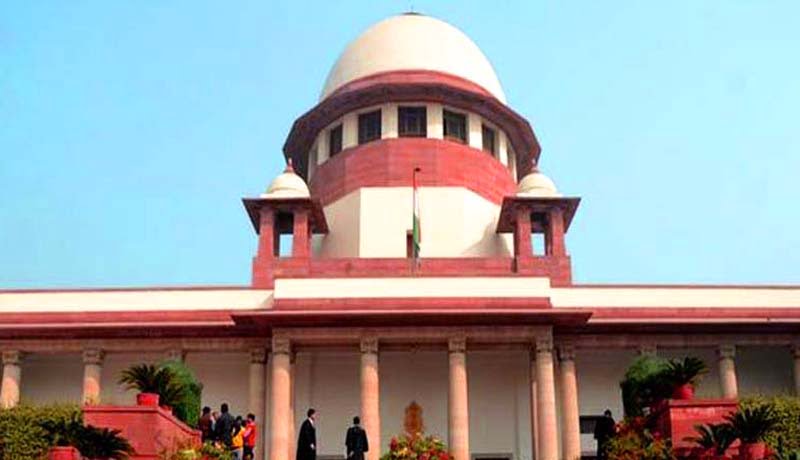Supreme Court suggests Govt to form Expert Committee to regulate Multinational CA Firms, Issues Directions [Read Judgment]

Supreme Court – excise-duty – taxscan
Supreme Court – excise-duty – taxscan
A two-judge bench of the Supreme Court, today suggested the Government to form an expert committee to regulate Multinational Accountancy Firms since they are violating laws.
The Court was hearing an appeal filed against an order of Karnataka High Court as well as another Petition filed directly before the Apex Court.
Before the High Court, the petitioners sought a direction for exercise of power under Section 21 of the Chartered Accountants Act, 1949 to initiate investigation against Multi-National Accounting Firms (MAFs) and Indian Chartered Accountancy Firms (ICAFs) having arrangement with such MAFs for breach of Code of Professional Conduct under the CA Act and also to take penal action by way of cancellation of permission granted to them by the Institute of Chartered Accountants of India (ICAI).
The Bench comprising Justice A.K. Goel and Justice U.U. Lalit noted that it is prima facie appeared that statutory provisions and policy frameworks were being violated by the MAFs. The MAFs seemed to be complying with these only “in form and not in substance”, by registering partnership firms with Indian partners, even though the foreign companies remained the real beneficiaries of the business of chartered accountancy. Such partnership firms, were “merely a face to defy the law,” the bench said.
It further noted that absence of revisiting and restructuring oversight mechanism as discussed above may have the adverse effect on the existing chartered accountancy profession as a whole on the one hand and unchecked auditing bodies can adversely affect the economy of the country on the other.
“Moreover, companies doing chartered accountancy business will not have personal or individual accountability which is required. Persons who are the face may be insignificant and real owners or beneficiary of prohibited activity may go scot free. As already noted, the Reports of the Study Group and Expert Group show that enforcement mechanism is not adequate and effective. This aspect needs to be looked into by experts in the Government. It may consider whether on the pattern of the Sarbanse Oxley Act corporate leaders be required to personally certify the accuracy of the financial statements. Further, how to prevent corporate analysts from benefitting from the conflict of interests, how to check audit companies from providing non-audit services and how to lay down protocol for auditors. It has also been brought to our notice that another law in US ‘Dodd-Frank Wall Street Reform and Consumer Protection Act, 2010’ to ensure more transparency and accountability of financial institutions to decrease the risk of investing needs consideration. It sets up an oversight body called the Financial Stability Oversight Council (FSOC).”
The Court further issued the following directions:
-
The Union of India may constitute a three member Committee of experts to look into the question whether and to what extent the statutory framework to enforce the letter and spirit of Sections 25 and 29 of the CA Act and the statutory Code of Conduct for the CAs requires revisit so as to appropriately discipline and regulate MAFs. The Committee may also consider the need for an appropriate legislation on the pattern of Sarbanes Oxley Act, 2002 and Dodd-Frank Wall Street Reform and Consumer Protection Act, 2010 in US or any other appropriate mechanism for oversight of profession of the auditors. The question whether on account of conflict of interest of auditors with consultants, the auditors’ profession may need an exclusive oversight body may be examined. The Committee may examine the Study Group and the Expert Group Reports referred to above, apart from any other material. It may also consider steps for effective enforcement of the provisions of the FDI policy and the FEMA Regulations referred to above.
-
It may identify the remedial measures which may then be considered by appropriate authorities. The Committee may call for suggestions from all concerned. Such Committee may be constituted within two months. Report of the Committee may be submitted within three months thereafter. The UOI may take further action after due consideration of such report.
-
The ED may complete the pending investigation within three months;
-
ICAI may further examine all the related issues at the appropriate level as far as possible.


